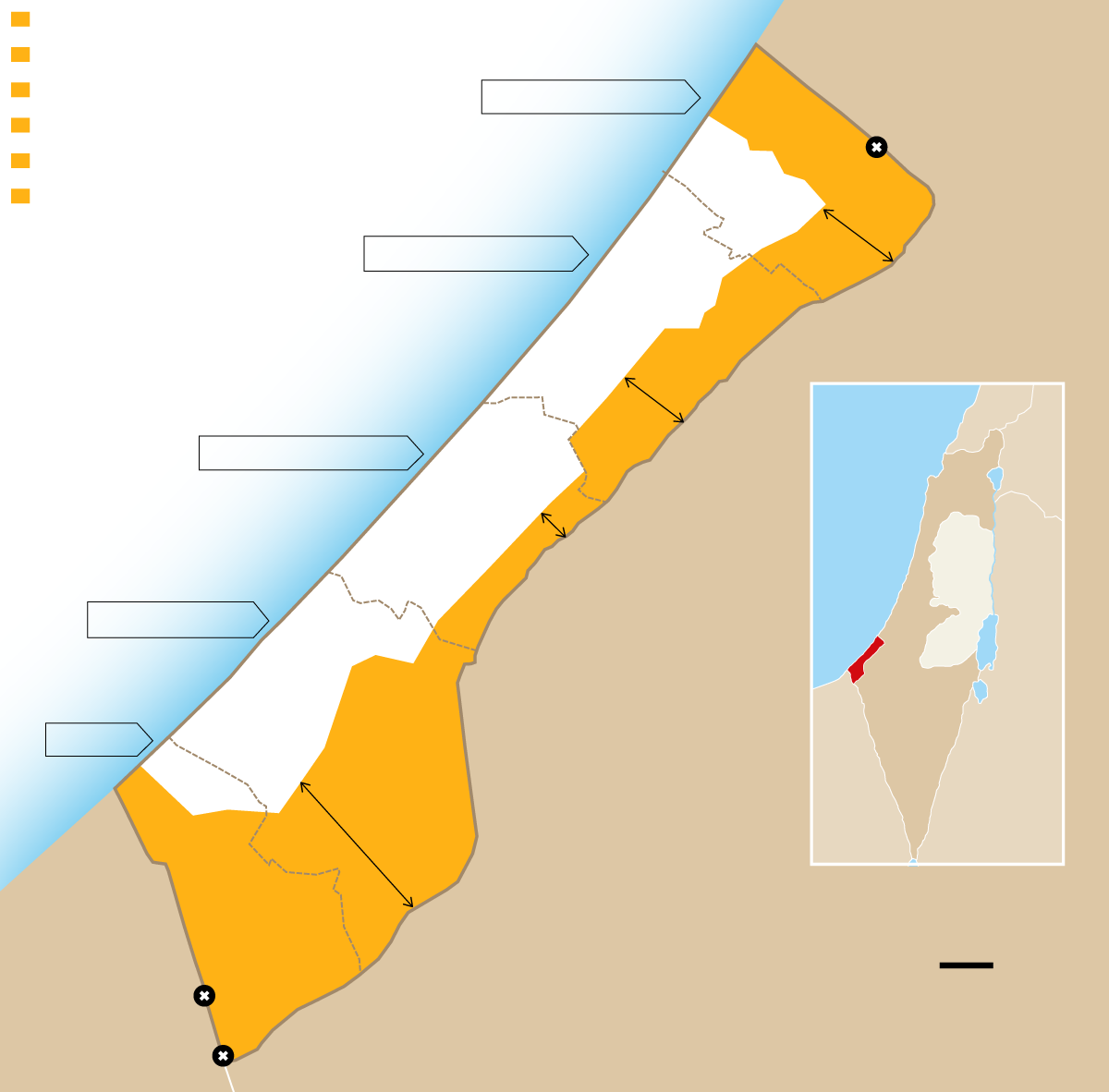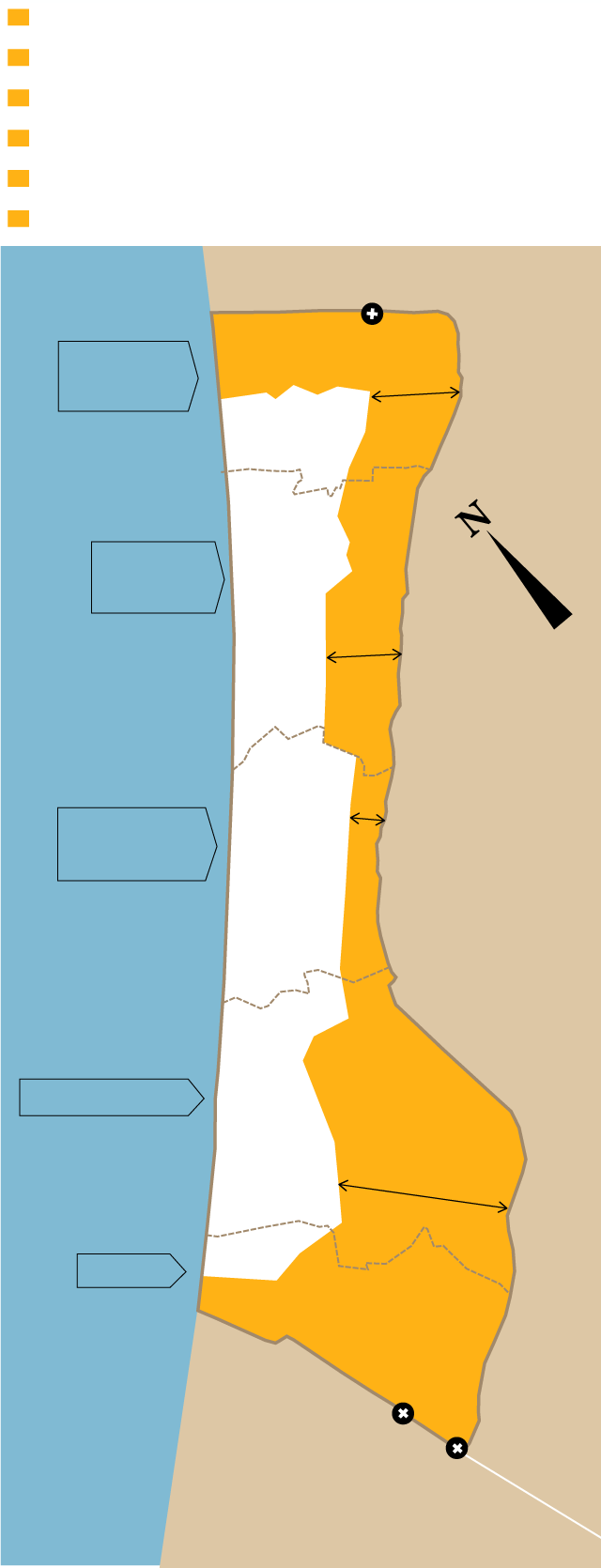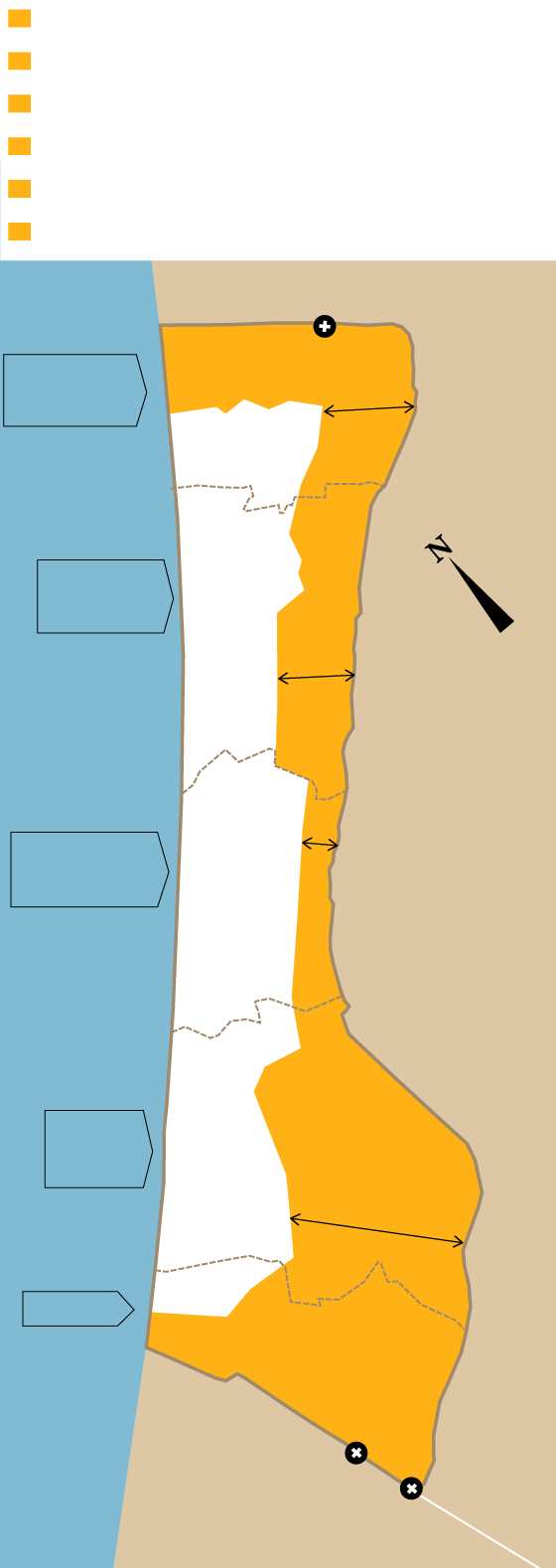Israel and Hamas agree to a ceasefire in Gaza, fraught with uncertainty.
The Netanyahu government approves the first phase of the plan, which is to stop the bombings 24 hours after


Special Envoy to Tel AvivIsrael and Hamas reached a ceasefire agreement in Gaza on Thursday, the first step in Donald Trump's plan. The people of Gaza welcomed the announcement, hoping for an end to two years of destruction, death, and hunger, but also uncertain that it may not be definitive. The Israeli government ratified the agreement just after midnight, which provides for the ceasefire to take effect after 24 hours, i.e., around midnight this Saturday. After this, the 48 Israeli hostages remaining in Gaza—both alive and dead—are expected to be released within 72 hours in an exchange with Palestinian prisoners. Hamas leader in exile, Khalil Al-Hayyia, had already said Thursday afternoon that he had received assurances from the United States that the war "is completely over."
In Israel, the families of the hostages also see the end of a tunnel of anguish and are confident that they will soon be reunited with their loved ones. But everyone is aware that things could still go wrong. And if the first phase—with the ceasefire and the exchange of hostages for Palestinian prisoners, the partial withdrawal of Israeli troops, and the entry of humanitarian aid—doesn't go smoothly, which won't be easy, there will still be many obstacles to overcome. The next few hours and days will be critical.
Hani Askari, of the Palestinian Center for Human Rights in Gaza, confesses his conflicting feelings in a telephone conversation from Deir al-Balah, in the center of the Strip. "I feel relieved, but at the same time I'm overwhelmed with pain. We live in an ocean of suffering. And yes, sometimes I see a glimmer of hope, but deep inside I feel exhaustion, loss, and fear... Grief for the loved ones who have been killed, and uncertainty because I don't have a home to return to."
"I'm extremely anxious, I've been waiting impatiently for the last few hours," says Mohamed Qassas, 31, from Gaza City, who was working in a restaurant in the capital of the Palestinian enclave. "It's supposed to be clearer tomorrow whether there will be a ceasefire. We're in a state of tense anticipation that's almost impossible to describe in any way. It seems as if time is frozen," he adds. The ceasefire is due to take effect 24 hours after the Israeli government's approval, i.e., after midnight on Saturday. From then on, all hostages must be released within 72 hours.
In Tel Aviv's Hostages Square, occupied for almost two years by the forum that brings together the families of the hostages to demand that their government prioritize their release, Omer Shem Tov, who spent 505 days captive in Gaza after being kidnapped during the Nova festival, contained his emotions: it's over. We continue to pray, send positive energy, and fight until everyone returns." In the square, there is more confidence in Trump than in Netanyahu: "Thank you, Mr. President", was one of the slogans of the day.
The Trump plan is ambiguous, and for now there is no agreement on the key issues of the next phases.: How far will the Israeli troop withdrawal from Gaza go? Is Hamas willing to disarm? Who will govern the Strip? And what guarantees are there that, after the release of the last hostage, Netanyahu will not return to war? After all, the Israeli prime minister has blown up previous truces—and could do so again under any pretext.– And the mediators, the United States and Qatar, have shown they are not neutral. Hamas has said it has received written assurances from the mediators and Turkey that the war is "definitively" over. But the coming days will be critical.
What will happen now?
This Thursday night, Netanyahu convened his war cabinet, two hours late and after the Cabinet had ratified the agreement. Finance Minister Bezalel Smotrich, had warned that he would vote against it and would not share the "short-sighted celebrations." Interior Minister Itamar Ben-Gvir, also a right-wing extremist, also criticized him. One of the unknowns is whether the governing coalition could break up and whether the right-wing partners will force an early election, scheduled for late 2026. During the Israeli cabinet meeting, Netanyahu met with the US special envoy, Steve Witkoff, and the "Jeve Witkoff" of the plan. Afterward, both joined the executive meeting.
Trump has announced that he will travel to the Middle East this Sunday. Specifically, he said he will first go to Egypt for the "official signing" of the ceasefire agreement and that he has also agreed to give a speech in the Israeli Parliament. It will be the first time a US president has spoken in the Knesset since George Bush did so in 2008.
Twenty-four hours after the ceasefire goes into effect, according to the plan, Israeli troops must withdraw to the yellow line defined by Trump to allow Hamas militants to round up 20 hostages they say are still alive in the Strip. A partial withdrawal, according to the statementIsraeli Foreign Minister Gideon Sa'ar said in an interview on Fox News that Israel is already preparing to withdraw its troops behind the "yellow line," 53% of Gaza. Subsequent withdrawals are subject to subsequent phases of negotiations.
Meanwhile, Israel and Hamas have agreed on the names of the 1,950 Palestinian prisoners who are to be exchanged for the hostages. The list includes 250 Palestinian prisoners with long sentences and some 1,700 Palestinians from Gaza who did not participate in the October 7 events and were subsequently detained. There are also 22 minors from Gaza.
Earlier on Thursday, the prime minister's office had clarified that Fatah leader Marwan Bargouti—known as the Palestinian Mandela because he has been behind bars since 2002 and is one of the most popular figures in Palestine—will not be released under the agreement. Israel has insisted on vetoing the release of prisoners considered "symbols."
Regarding the bodies of the 28 deceased Israeli hostages in the Strip, some countries, such as Turkey, have offered to send their experts to Gaza to recover them. Hamas has already warned that it is difficult to locate them in the conditions in the Strip following the Israeli bombing campaign. Senior Israeli officials told CNN that they will not agree to return the bodies of Hamas leader Yahya Sinwar, or his brother Mohamed, to Gaza. Israel has reportedly included the return of the bodies of 360 Palestinians it holds on the exchange list.
Since the text of the agreement has not yet been made public, it is not known whether it corresponds exactly to the first phase established in Trump's plan, This also provides for the entry of humanitarian aid under United Nations control, specifically 600 trucks. More than 8,000 trucks have been blocked by Israel since March 2 at the Rafah border crossing in Egypt, causing the worst hunger crisis on the planet today.
The next steps, the most uncertain
If this initial phase is overcome, negotiations between Israel and Hamas will continue on the next stages, which should address the demilitarization of Hamas, the return of Palestinians to their areas of origin to rebuild their homes, and the establishment of a technocratic interim government, which, according to Trump's plan, should be subordinate to an international authority under Tony Blair.
Supposedly, Gaza should then be transferred to the control of the Palestinian Authority, but this is science fiction at the moment. Netanyahu has made it clear that he does not intend to accept this nor does he intend to withdraw from Gaza. Mahmoud Abbas, the president of the Palestinian Authority, which controls the West Bank, said in a rare interview on Israel's Channel 12 that he is coordinating with the United States a reform plan in education, healthcare, and the economy. The reform, he explained, also includes the controversial issue of aid to the families of the more than 11,000 Palestinian prisoners currently in Israeli jails.
Abbas is willing to follow Trump's dictates to govern the ashes of Gaza. Netanyahu, on the other hand, has ruled out the idea of the Palestinian Authority, created by the 1993 Oslo Accords, returning to govern Gaza, just as he completely rejects the idea of a Palestinian state. Too much uncertainty for those who dream, not of peace, but of some calm in this corner of the Mediterranean.



